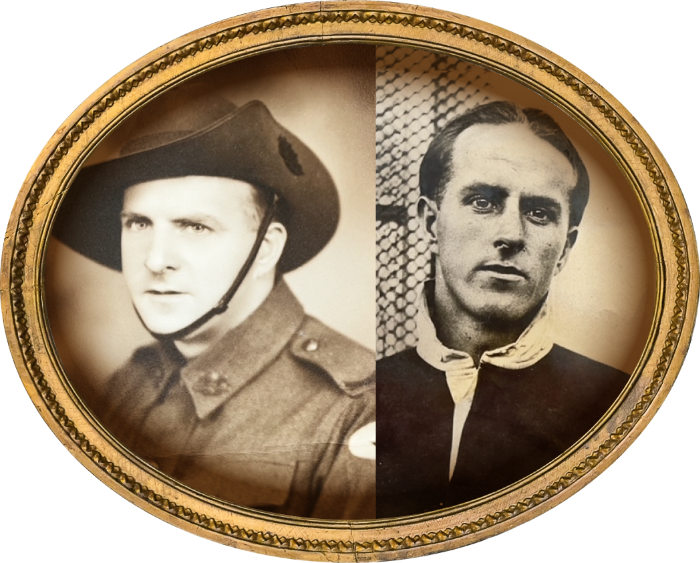
Aub Jones was blessed with speed. Not only did he terrorise defences when he helped Merewether Carlton win six rugby union premierships in the 1930’s but he was just as fleet-footed on the sand and became a noted beach sprinter.
As a member of Merewether SLSC, he was standard bearer of the club’s march past team, outstanding beach sprinter and more than handy swimmer who was involved in some notable rescues.
He even put his life at risk prior going to war when he was visiting family at Wangi on the lake. He noticed a shark in the water. He swam out to a swimmer to warn him of the danger and both returned to shore safely.
Playing on the wing, he had the honour of scoring the Greens opening try in their first premiership in 1932, a 28-9 win over Maitland in the decider. A year later, the Merewether Surf Life Saving Club member took bronze in the Australian beach sprint championship.
Like a number of his Carlton teammates, Aub served his country in World War 2. He enlisted in the AIF on March 20, 1941 and served the 2/20 Battalion in Singapore. Sadly, he became a prisoner of the Japanese in Changi. Aub survived the horrors of captivity to return home. His discharge papers records his discharge with a prosthetic leg, 50% loss of function in one eye and shrapnel embedded in an arm.
His Australian Defence Forces Medical Board records show that he received a wound to his right eye and had grenade splinters to his right arm during fighting in Singapore on 10.2.1942 and then had his right leg amputated because of infected ulcers at Chunqkai camp in Thailand (formerly Siam) on 29.9.1943.
Aub’s daughter, Christine’s, knowledge of Aub’s PoW experience is limited but she can clearly recall the story, told by her aunts (Aub’s sisters), of the amputation having been performed by the legendary AIF surgeon Sir Edward “Weary” Dunlop.
Another of the foundation Carlton players was Jack Croft. He was in Changi with Aub.
In Jack’s diary, he makes two references to Aub. Jack notes that on March 16, 1942 that Aub is in hospital with shrapnel damage to his face and eye. He again makes reference to Aub exactly a year later going with D – Force, one of several groups sent out of Changi to work on the Thai-Burma Railway.
Jack’s Diary (23/12/1943) records a conversation with a member of his own unit who recounted his experience of life in the Death Railway work camps;
Train trip was horrible: dysentery broke out on train: marched 190 miles in 14 days: men dropping out but later picked up and taken to a base hospital. Night marches through jungle, rained all time. Natives very hostile: water very scarce and obtainable only by buying from natives: Personal belongings discarded and medical and kitchen supplies carried, most of these also had to be discarded. Soon after arriving at camp cholera outbreak: work consistently of road and railway building. Work proportioned at rate of 1800 men but only 300 men capable: time limit on work and men taken from hospital some had to be carried and others on sticks and crutches. Malaria: Dysentery: Beri Beri; scabies and ulcers took their toll – bodies were piled up or burnt. Rained all time, no roof on buildings and no time to repair them: legs were amputated in the open and only 6 minutes allowed for the job owing to shortage of chloroform: Work inhumanly hard, 3 men to carry logs 20’x12’, also many bashings and deaths therefrom: Hours for work very long and for one month 6am to 3am, less than 3 hours rest, sometimes they worked 30 hours stretch with little rest. Still doing the work of 1800 men with less than 300. Many died like flies. Food in hospital was rationed to 3 dessertspoons of rice and ½ pint gruel per meal. Many deaths from starvation. All stores had to be carried by hospital patients a distance of 15 miles return trip…. doctors did marvellous work …. Personal hygiene lacking and a great percentage of deaths occurred amongst them.
“I remember mum (Ella) telling me when I was very young that dad had said to her when he was coming home from the war, ‘do you still want me with one leg?’ I can’t forget that,” daughter Christine said.
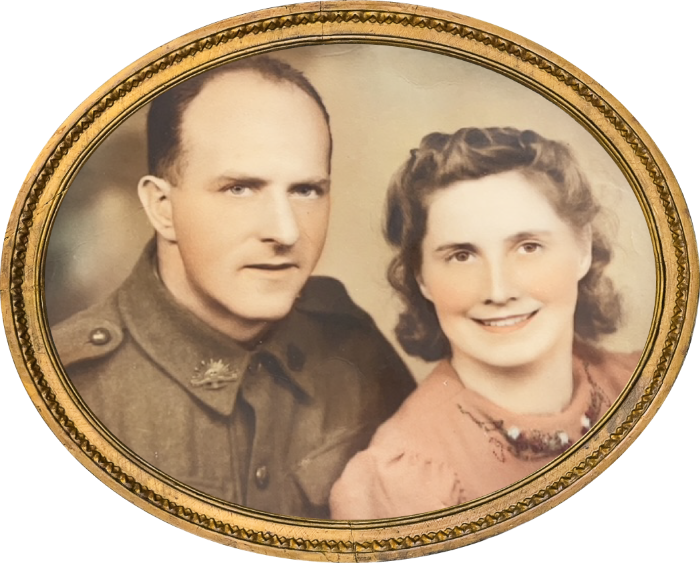
Aub had two daughters. Christine’s older sister Marilyn has passed away. “I was only 14 when dad died,” Christine said. “He was very quiet and didn’t say much about the war.”
“Although he did tell a couple of stories to my cousin Peter.”
“This is what Peter recalls: A group of Aussie soldiers were sitting around having a smoko, chatting. A sniper shoots at one Aussie, just as he laughs. His head tips back, the bullet hits the rim of his helmet and travels around the edge of his helmet, leaving a burn mark around his head. Another shot hits a different Aussie in the mouth, causing a tooth to fall out!”
“Another story is: The Japs found tinned Australian peaches in food stores labelled Jones peaches. They questioned Aub, assuming he was responsible for the production of the product. They took Aub to the kitchen to explain to the Japanese chefs what to do with the contents for Japanese consumption. Grateful for Aub’s help, they said he could eat in the British Officers Mess and gave him a British uniform. He declined the offer. He said the Japs hated the British more than the Aussies.”
While Aub worked for Comsteel, he also spent time in the grocery business, thus following in the footsteps of both his grandfather and father.
His grandfather Thomas was also Mayor of Greta. His father Alfred had a grocery business in Kurri before moving to Merewether after the Greta mines disaster.
“After the war dad worked for his brother Ted in a small grocery business in Adamstown,” Christine said. “He (Ted) made dad a special stool on wheels so he could move around and didn’t have to stand all day,” Christine said.
Prior to playing rugby for the Greens, Aub played for the Cooks Hill Surf Club RUFC in 1929 and Merewether RUFC immediately prior to the amalgamation.
From 1930 to 1940 he played 182 club games for the Greens, 167 in first grade. He regularly represented Newcastle, including against the All Blacks, and Country Seconds against Sydney.
He was the second player in club history to achieve 100 first grade games.
Aub’s six 1st grade Premierships included the Club’s first undefeated season in 1938.
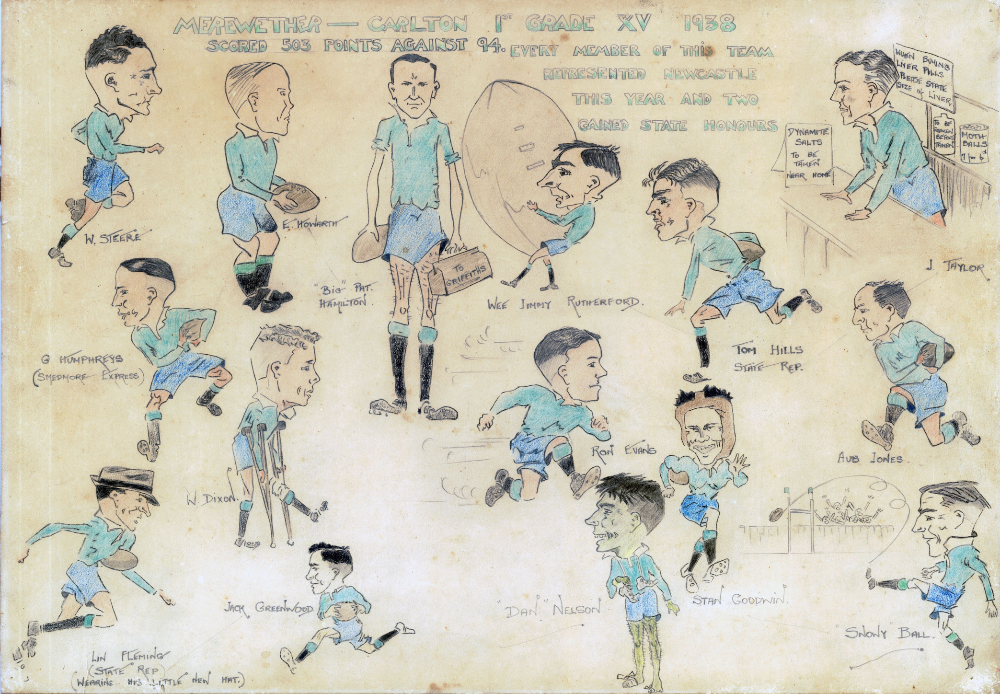
In 1948 Aub became the Club’s fourth Life Member. The first former player to receive that recognition.
FURTHER READING

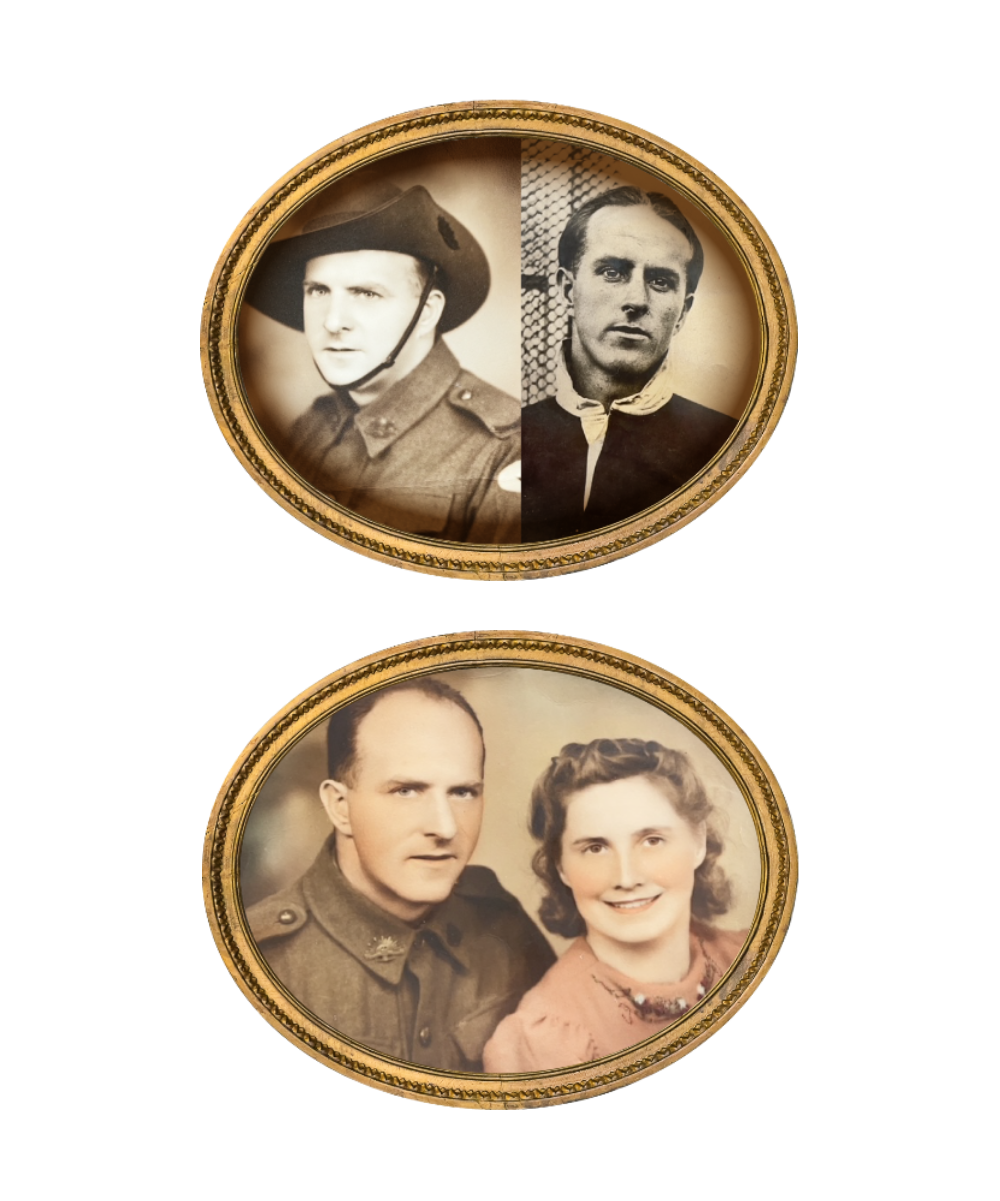
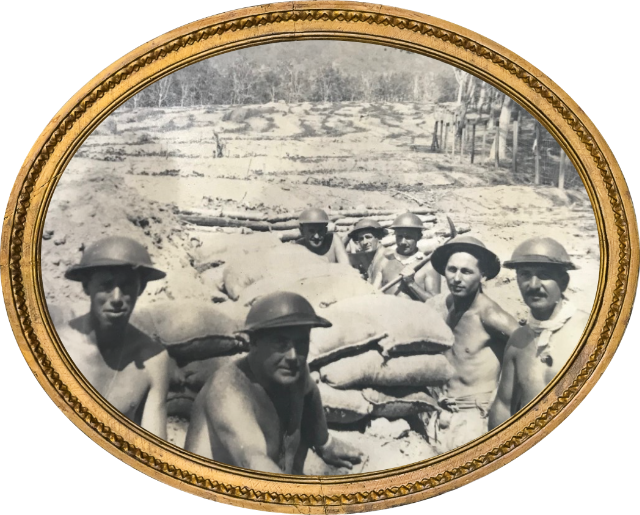
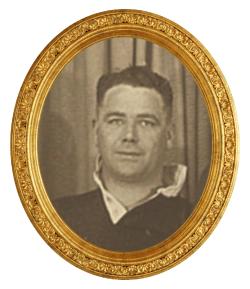
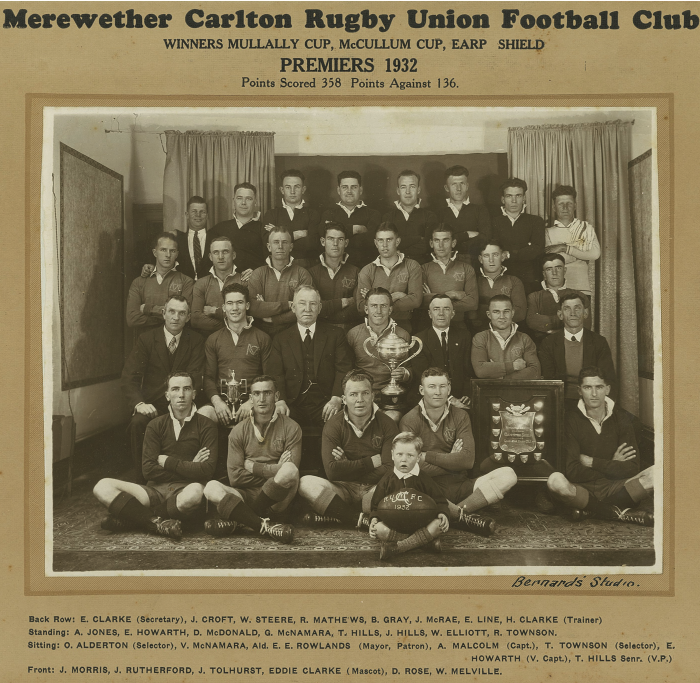
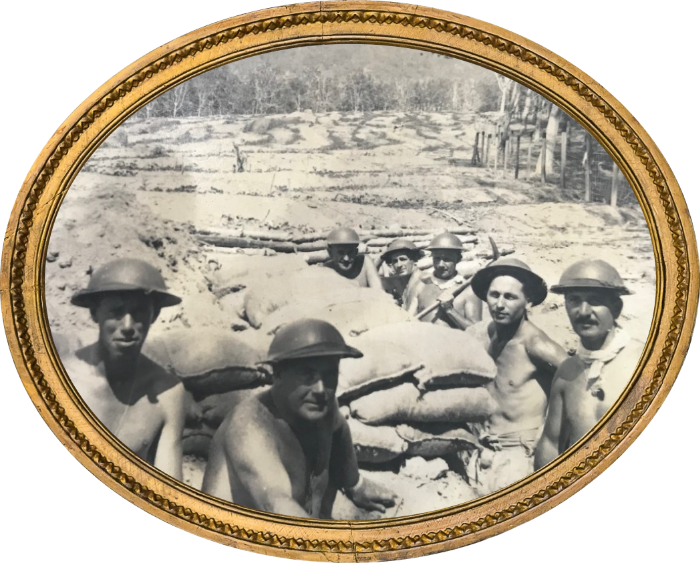
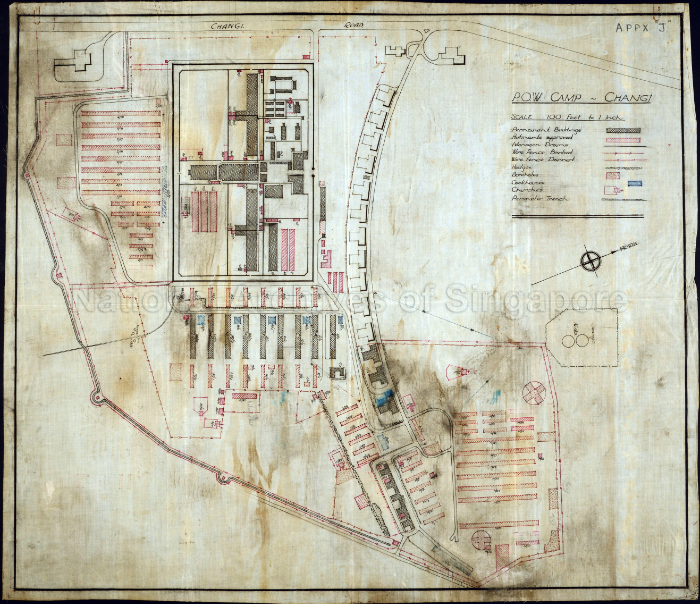
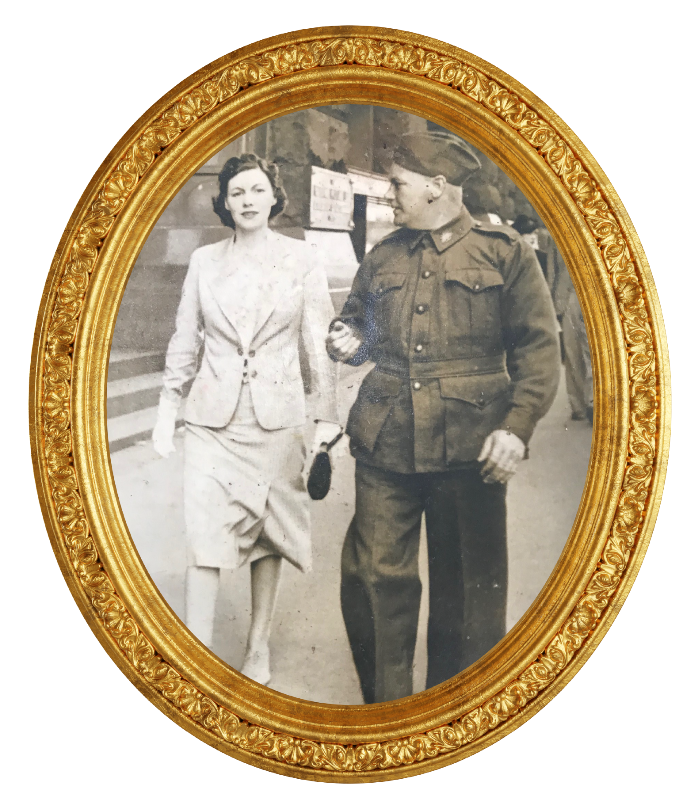
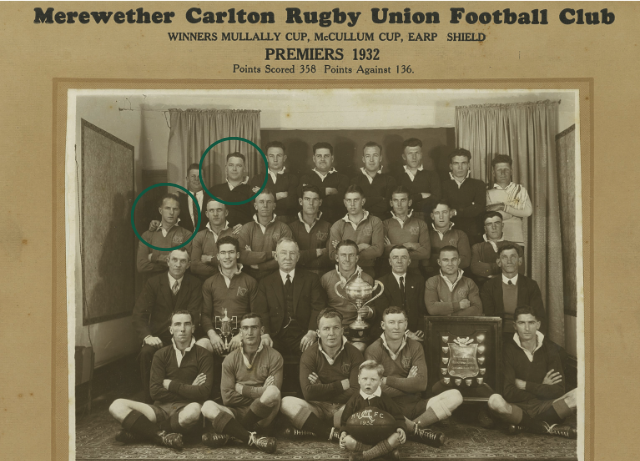
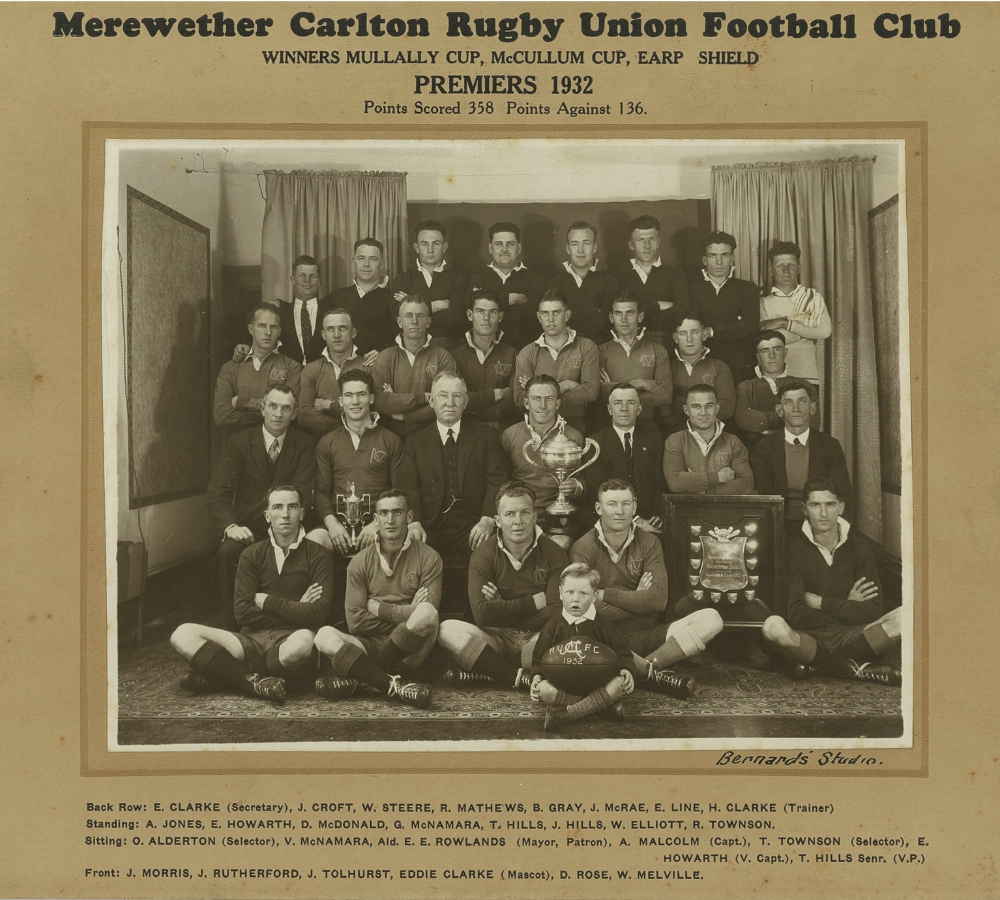
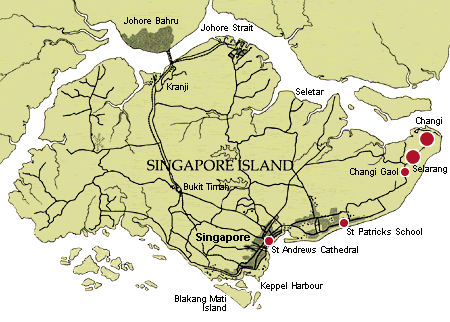
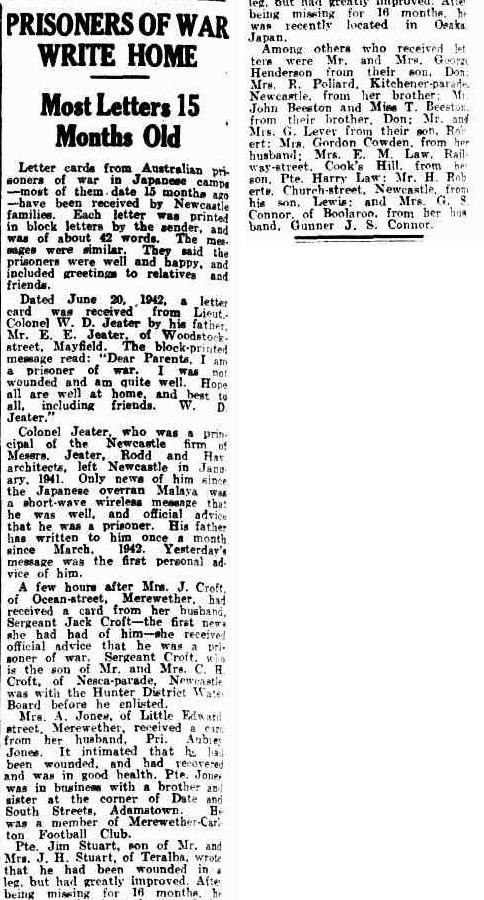
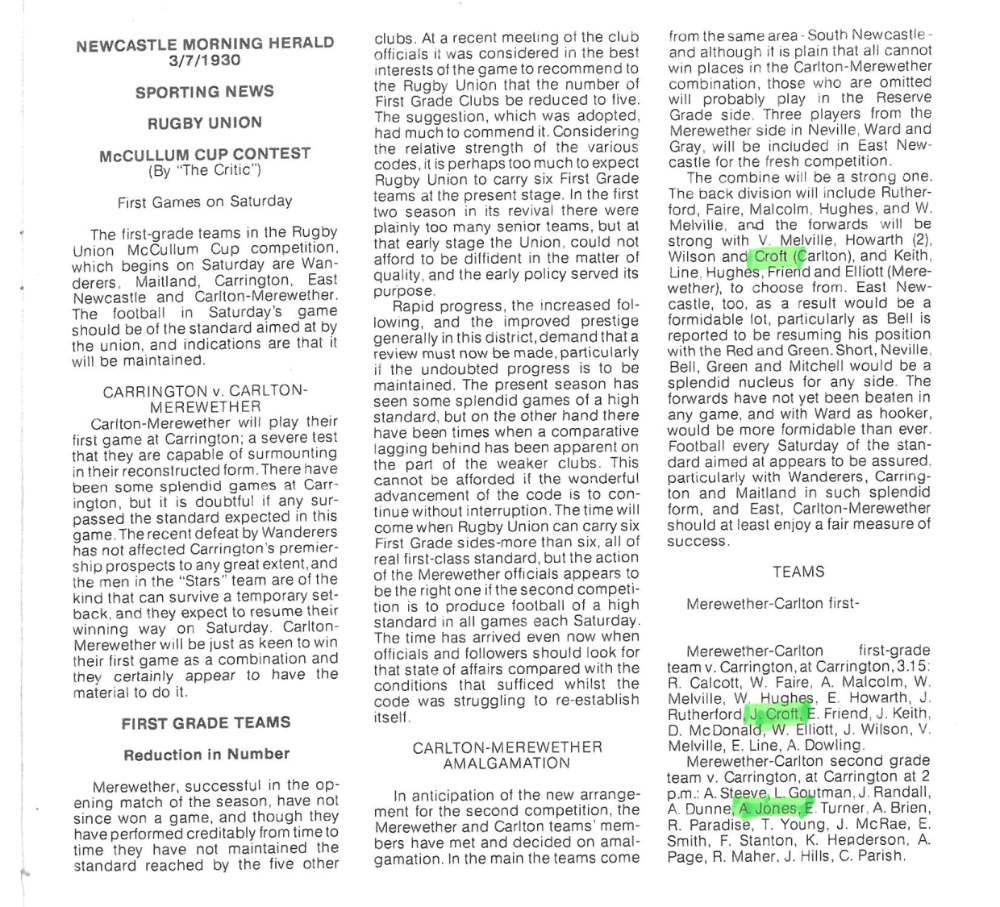














Social NewsNews and information
Merewether Carlton Rugby Club
Merewether Carlton Highlights @carltonrugby
@carltonrugby Rugby Union Club
merewethercarlton
Official account of Merewether Carlton Rugby Union Club 🟢
2024 Premiers 🏆
Est. 1930
#bleedgreen